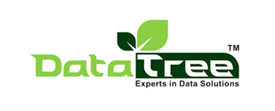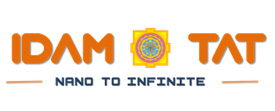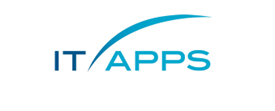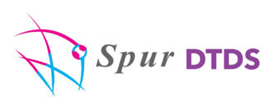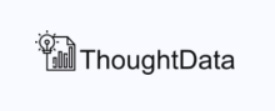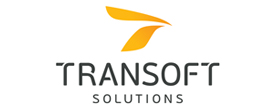Payroll Processing Services
We execute end-to-end payroll processing, maintaining timely and correct salary disbursement, statutory deductions, and compliance with payroll laws and regulations.

Payroll processing is a well-structured way by which your company can calculate, manage and disburse your employee's salaries, deductions and benefits. And this process involves a lot of steps like gathering the employee data, calculating gross and net pay, deducting taxes (TDS), provident fund (PF), and employee state insurance (ESI) contributions, and finally, ensuring timely salary distribution. Payroll processing is not just about missing paychecks, it also includes compliance with regulatory frameworks, accurate recordkeeping, and periodic payroll reporting to authorities.
For a company, it is important to have a strong payroll system to minimise the compliance risks and ensure alignment with the existing legal standards. And it necessitates the integration of leave management, automated tax filing, and real-time attendance tracking tools and systems, all of which improve accuracy and decrease human error. When the payroll system in your company is optimised effectively then it helps to facilitate effective personnel management, shields the company from fines for non-compliance, and permits financial reporting that supports organisational objectives. For businesses of all sizes, simplified payroll processing is essential for maintaining an efficient financial and human resources management of the company.
Why Choose Benchmark
As a company, it is important to choose the right partner for your company's payroll processing services to maintain the accuracy, compliance and efficiency in managing employee compensation. We focus a lot on providing customised services focusing on delivering comprehensive payroll solutions that align with both regulatory standards and unique business needs. Here's why our payroll processing service stands out:
- We ensure precise, compliant payroll calculations and timely disbursements
- We integrate advanced payroll software for real-time tracking and reporting
- We adhere strictly to statutory requirements for TDS, PF, ESI, and other contributions
- We offer customisable payroll reports for management insights and audit purposes
- We simplify compliance through automated filings and deadline reminders
- We deliver tailored solutions to meet industry-specific payroll needs
Our Services
We at Benchmark provide you with a customised payroll processing service that is intended to simplify the management of your company's remuneration. Below is an overview of our payroll services and processes, tailored to ensure accurate and timely payroll management for your business.
| Service | Description | Compliance Requirements |
|---|---|---|
Payroll Calculation |
We calculate gross and net salaries, applying deductions like TDS, PF, ESI, and Professional Tax as per the law. | TDS, PF, ESI, and PT compliance |
Data Collection & Verification |
We gather essential employee information, attendance logs, and leave records to ensure accurate payroll. | Adherence to recordkeeping standards |
Tax & Statutory Filings |
We manage TDS filings, EPF contributions, and ESI filings, ensuring timely submission to avoid penalties. | TDS Returns, EPF, and ESI filing |
Salary Disbursement |
We execute direct bank transfers for salary disbursement, following a secure and timely payout process. | RBI guidelines for fund transfers |
Leave & Attendance Management |
We integrate leave balances and attendance records with payroll, offering an automated solution for accuracy. | Compliance with minimum wage and overtime laws |
Custom Payroll Reporting |
We generate customised payroll reports for audit, management review, and tax filings as per your requirements. | Record maintenance for audit purposes |
Year-End Payroll Reconciliation |
We conduct a full reconciliation of annual payroll records to ensure compliance and prepare for tax returns. | Year-end payroll and income tax compliance |
Documents Required
To ensure a smooth payroll processing, we need specific documents from your company and its workers. According to Indian payroll standards, these records are necessary for precise salary computations, regulatory compliance, and record-keeping. The documents listed below are necessary to establish and keep up a productive payroll system:
| Documents | Description |
|---|---|
| Employee Personal Details | PAN card, Aadhaar card, and bank account information |
| Employment Contracts | Signed employment agreement, including details on salary, benefits, and deductions |
| Proof of Tax-Saving Investments | Investment declarations (PPF, NPS, insurance premiums) |
| Attendance Records | Monthly attendance sheets, including leaves and overtime |
| Salary Structure Details | Detailed breakdown of salary components (basic, HRA, allowances, deductions) |
| Employee Provident Fund (EPF) & ESI Registration Details | Employee registration numbers for EPF and ESI |
| Professional Tax (PT) Certificate | Certificate confirming PT registration and applicable rates |
| Form 16 (for existing employees) | Previous year's Form 16 from the former employer if available |
| Gratuity & Leave Encashment Records | Details on accrued gratuity and leave encashment balances |
Non-Compliance Issues to Avoid
Non-compliance in payroll processing can lead to severe consequences, from financial penalties to damaged employee trust. Ensuring compliance with statutory regulations is essential for smooth payroll operations and safeguarding your business's reputation. Here are critical non-compliance issues to avoid:
- Ensure timely submission of TDS, EPF, and ESI contributions to avoid penalties
- Avoid underpayment of wages; always adhere to minimum wage laws and overtime regulations
- Don't overlook the accuracy of attendance and leave records, which directly affect payroll calculations
- Prevent errors in tax deduction calculations, as incorrect TDS can lead to audits and penalties
- Don't disregard proper record-keeping practices, as missing documentation can complicate compliance audits
- Avoid delays in issuing Form 16 to employees, as it impacts their tax filing process
Payroll Compliance Checklist
Payroll compliance necessitates close attention to detail and complying to legal requirements. Every stage needs to be closely monitored and documented in order to keep the payroll process running smoothly. To keep your company in compliance with Indian payroll laws, follow this checklist of essential payroll compliance tasks:
- Verify accurate TDS deductions based on employee income and tax-saving declarations
- Ensure timely deposit of Provident Fund (PF) contributions to EPFO accounts
- Submit Employee State Insurance (ESI) contributions as per statutory timelines
- Adhere to Professional Tax (PT) rates and filing requirements specific to each state
- Maintain updated employee records, including PAN, Aadhaar, and bank details for compliance verification
- Generate and distribute Form 16 to employees annually for tax filing purposes
- Calculate and report Labour Welfare Fund (LWF) contributions, where applicable
- Conduct periodic payroll audits to identify and resolve discrepancies in payroll data
- Track and document all leave and attendance data to align with minimum wage laws and overtime regulations
- File quarterly TDS returns (Form 24Q) to ensure tax deductions are correctly reported
Conclusion
Financial correctness, employee satisfaction, and organisational compliance all depend on efficient payroll processing. By using Benchmark's specialised payroll processing services, you can guarantee a smooth, legal payroll process that complies with Indian regulations, reduces risks, and fosters the expansion of your company.
Get in Touch
Ready to streamline your payroll? Contact us today to learn how our expert team can simplify your payroll process, and enhance compliance.
FAQs
What is the benefit of outsourcing payroll processing instead of managing it in-house?
Outsourcing payroll processing can save time, reduce errors, and ensure compliance with the latest payroll regulations.
How often should payroll data be reviewed or updated?
Payroll data should ideally be reviewed monthly to capture any changes in employee information, salary structure, tax declarations, or deductions.
How does payroll processing ensure data security for employee information?
Professional payroll services use encrypted systems and secure servers to protect sensitive employee information.
How does payroll processing handle end-of-year tax adjustments?
At the end of the financial year, payroll processing services perform a reconciliation to adjust tax deductions in accordance with actual earnings and investment declarations made by employees.
Can payroll processing be integrated with accounting systems?
Yes, most modern payroll processing systems offer integration capabilities with accounting software, allowing for seamless data flow between payroll and accounting records.








